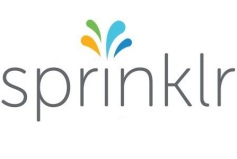 Digital artwork, from digital music to fine art, has been a growing area for a while now.
Digital artwork, from digital music to fine art, has been a growing area for a while now.
If a work is infinitely reproducible at no cost, however, how can a collector establish that they have an original or one of an edition? Monegraph takes advantage of the bitcoin database, the block chain, to log each transfer of a work (just as the database does for bitcoin), so that it really is set in stone who owns a digital piece at each moment.“It’s not about stopping piracy.
It’s about facilitating legitimate commerce,” Kevin McCoy, co-founder and CEO of Monegraph, told the Observer in an interview before the night’s presentations. He pointed to iTunes as an example of a marketplace for digital music.
He said people might have their complaints about how Apple did it, but it was a way for people to know they were purchasing authorized work. There hadn’t been a good way to do that before.
Once there was, people did it.
Source: Observer




 has agreed to license data and reviews to Sprinklr, a company that helps marketers track what consumers say about them on digital platforms.
has agreed to license data and reviews to Sprinklr, a company that helps marketers track what consumers say about them on digital platforms.



